
Cuba, Latin America: Week in Review
Cuba’s Fidel Castro Says His Country’s Economic Model No Longer Works
September 9, 2010 By Staff
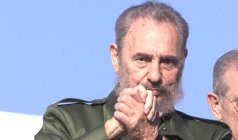
Former Cuban head of state Fidel Castro.
Today in Latin America
Top Story — A U.S. journalist surprised observers Wednesday by reporting that former Cuban head of state Fidel Castro no longer has enough confidence in the Cuban economic model to export it.
During an interview with Atlantic Magazine correspondent Jeffrey Goldberg, Castro said the Cuban economic model “doesn’t even work for us anymore.”
As The Associated Press noted, Castro’s comments are not newsworthy because the idea is novel — Fidel’s brother and current President Raúl Castro has criticized the country’s communist economic system and has been introducing reforms.
But Fidel Castro, the leader of the Cuban Revolution that came to power in 1959 and installed a communist system in the 1960s, had not previously spoken so candidly about the viability of the country’s economic model. According to AP, in recent years he has rarely spoken about domestic issues at all.
Golberg’s post to The Atlantic’s Web site was cited widely by the mainstream media, but Cuba scholar Julia Sweig, who accompanied Goldberg on his recent visit to interview Castro, had a different take.
According to Goldberg, Sweig said “(Castro) wasn’t rejecting the ideas of the Revolution. I took it to be an acknowledgment that under ‘the Cuban model’ the state has much too big a role in the economic life of the country.”
Castro contacted Jeffrey Goldberg to discuss a recent feature he had written for The Atlantic about how the U.S. and Israel view the prospect of Iranian nuclear capability. It was the first time that Castro had given an interview to a U.S. journalist since falling ill in 2006, according to AP.
Golberg has also written this post about the interview with Castro, and plans to write a larger piece for the print edition of the magazine.
Just Published at the Latin America News Dispatch
- Arizona State Senator Russell Pearce, lead author of the controversial immigration bill SB 1070, sat down with Molly O’Toole to discuss illegal immigration and elections. Here’s what he had to say.
- With classes about to begin, undocumented students are breathing a sigh of relief. Alison Bowen explains why.
- Chile has a new education initiative that it hopes will attract more qualified teachers. Read more about the new program in this article by Dispatch contributor David Mauro.
Headlines from the Western Hemisphere
North America
- An explosion ripped through a major Mexican refinery on Tuesday, killing one worker and pushing gasoline and diesel prices higher on worries state oil monopoly Pemex will have to import more fuel.
- Tens of thousands of people have abandoned their homes across southern Mexico to escape flooding from weeks of torrential rains, and forecasts are predicting even more rainfall. The situation worsened for some areas Tuesday when authorities began releasing 2,000 cubic meters (71,000 cubic feet) of water every second from four dams whose reservoirs were filled to capacity. The surge caused several rivers to overflow.
- The authorities in Mexico say they believe they have found the bodies of two officials investigating the killing of 72 foreign migrants last month. Prosecutor Roberto Suárez Vázquez and Juan Carlos Suárez Sánchez, a top security official, went missing two weeks ago in the state of Tamaulipas.
- The Committee to Protect Journalists said attacks on the press in Mexico represent a “national crisis” that demands “a full-scale federal response.” The New York-based press group says that eight of 22 journalists killed since President Felipe Calderón took office in 2006 were murdered in reprisal for their work.
Caribbean
- State security arrested aid worker Alan Gross in December at the Havana airport after he allegedly provided unauthorized satellite Internet connections to Cuba’s tiny Jewish community and his detainment continues to hamper U.S. efforts to ease Cuba ties.
- Barbados’ prime minister, David Thompson, has left the Caribbean island again to seek medical attention in the United States, just a week after he returned from receiving treatment for an undisclosed illness.
Central America
- Officials called off the search yesterday for 15 people missing after deadly landslides in Guatemala, fearing fresh avalanches of mud after the heaviest rains in 60 years. Rescuers had just resumed their grim task of digging for corpses in a ravine next to the Pan-American Highway when officials decided the sodden terrain was unsafe.
- Hundreds of demonstrators took to the streets for the second night in a row in downtown Los Angeles Tuesday night to protest the police shooting of a Guatemalan immigrant.
- Men armed with assault rifles burst into a shoe factory and opened fire Tuesday, killing at least 18 workers and wounding five, Honduran authorities said. National police spokesman Leonel Sauceda called the attack in the northern city of San Pedro Sula “a massacre.”
- The president of Honduras is in New Orleans for the second time this year to renew the sister-city relationship. Mayor Mitch Landrieu welcomed President Porfirio Lobo. Landrieu said that Tuesday night they will sign a memorandum of understanding with the seven local universities.
- El Salvador’s president, Mauricio Funes, is urging the United States to form a new alliance with Central American countries to reduce illegal immigration through an economic development program.
- Costa Rica’s appeal to the Arizona District Court over the rights of undocumented immigrants in the United States was thrown out last week because it was submitted past deadline.
Andes
- Colombia’s state-controlled oil company, Ecopetrol SA, found gas in a well drilled in the Northeastern province of Norte de Santander, the company said Wednesday.
- A senior U.S. trade official expressed confidence Wednesday that Congress will approve pending free trade agreements with Colombia and Panama, though he couldn’t predict when.
- Venezuelan President Hugo Chávez said Wednesday that he will meet later this month with the country’s Jewish leaders, who are expressing concerns about anti-Semitism in some state media.
- Antamina, a leading copper-zinc mine in Peru, said on Wednesday its copper output would rise by up to 40 percent after a $1.2 billion expansion is concluded.
Southern Cone
- Federal police in Brazil are investigating if tax officials tied to President Luiz Inácio Lula da Silva’s political party illegally accessed the filings of opposition figures.
- Interim Argentina soccer coach Sergio Batista was given an extension to coach the team through the end of the year.
- The 33 trapped Chilean miners were able to watch their national team compete in the European Cup live thanks to a small projector wired down to their safety chamber.
- Tensions have risen between Argentina and Uruguay over whether to develop Buenos Aires or Montevideo as a major regional port.
Image: Carololine @ Flickr.
Subscribe to Today in Latin America by Email
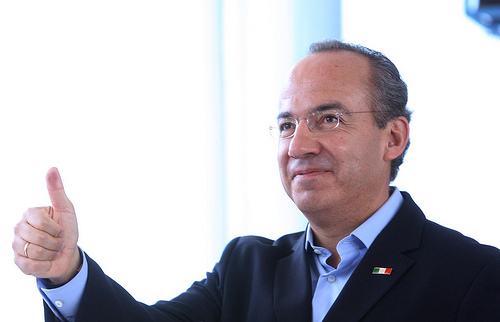
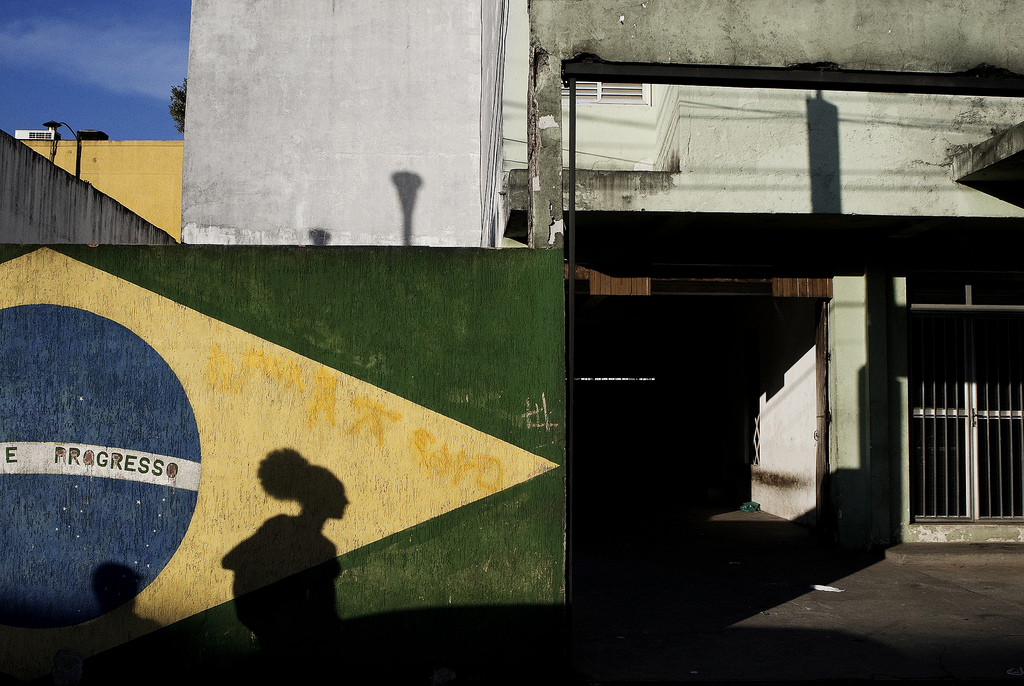
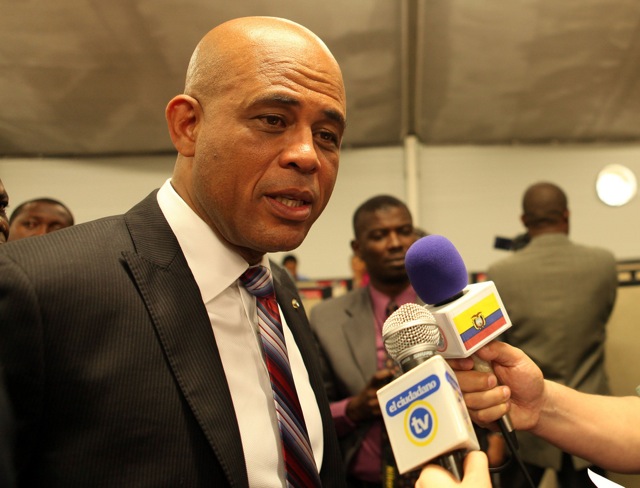
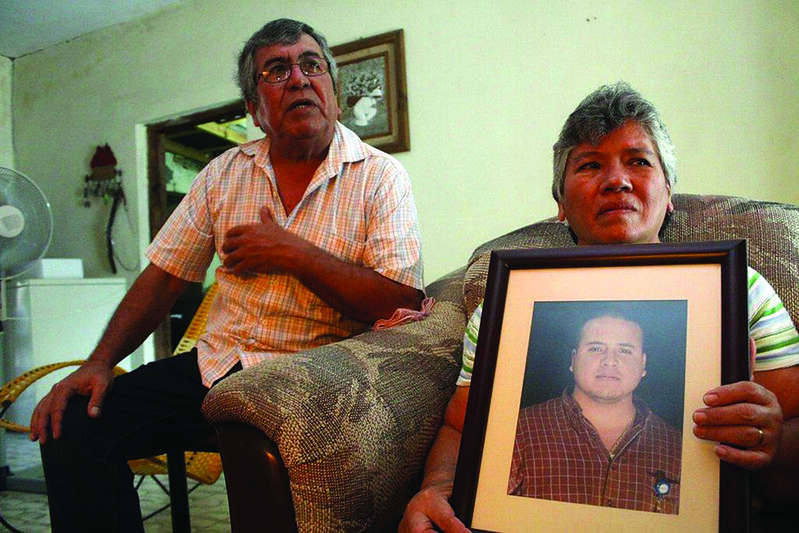
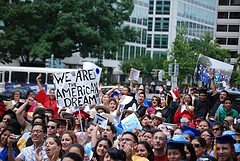
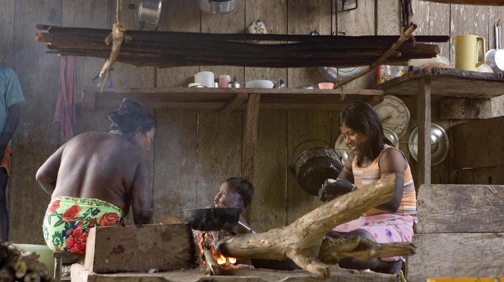
1 Comment
Let Fidel keep talking….for once he is making sense…AND gets his point across in under 5 hours!
Que Viva Cuba Libre!
Comments are closed.